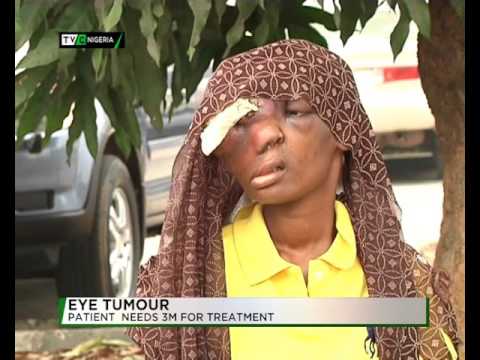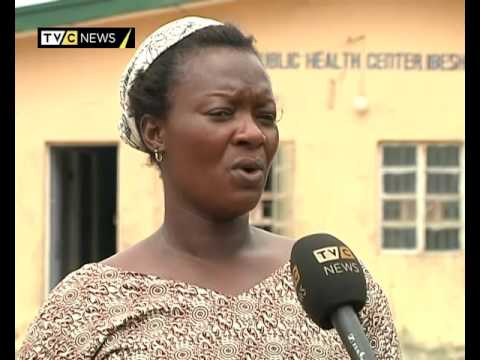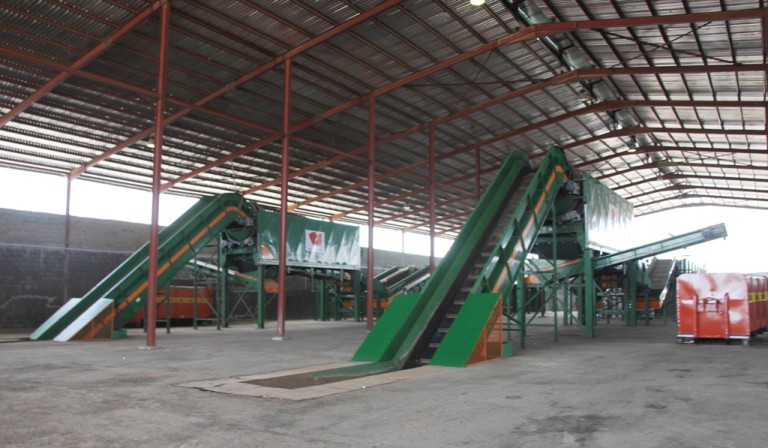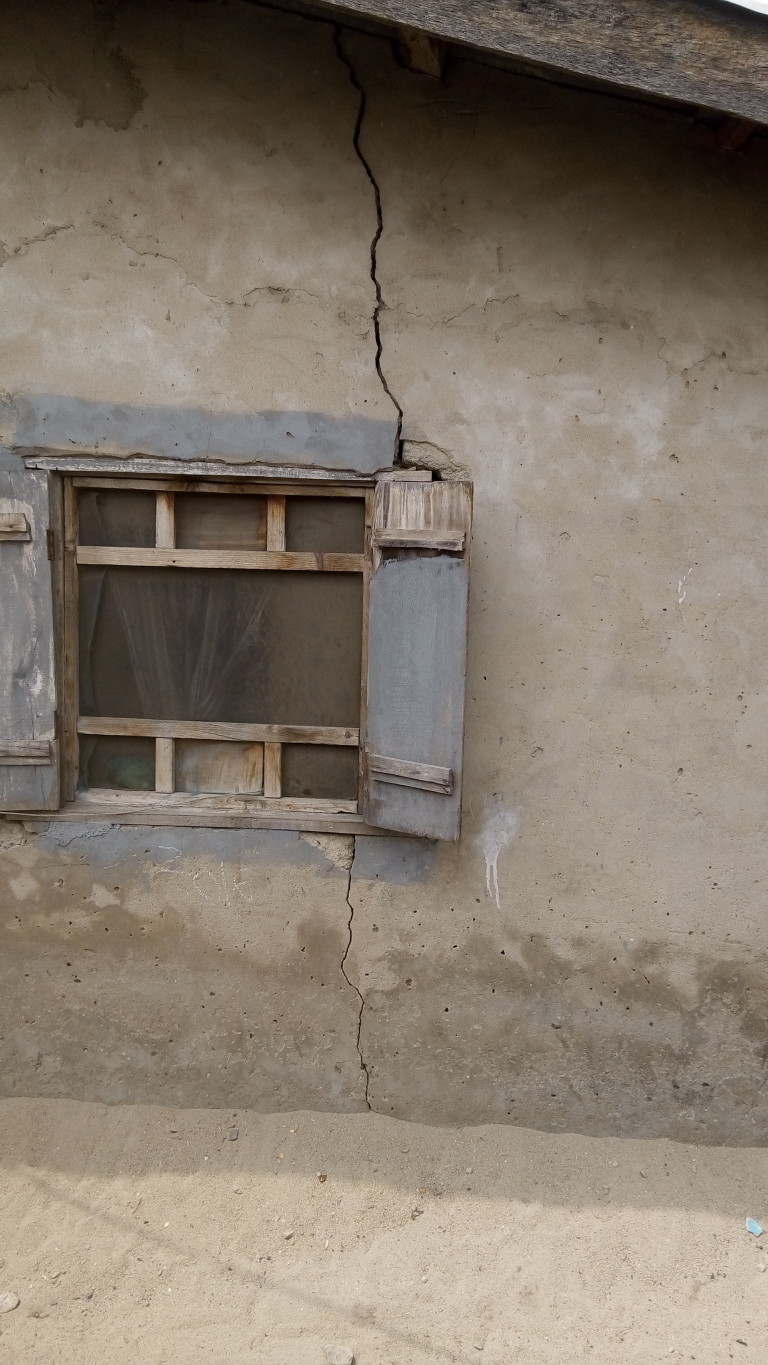Video: Why death rate remains high in Nigeria
Pregnant women at Oriade community in Lagos say they will continue to patronise traditional birth attendants because the only primary health centre there is not well equipped.
In this report, I examine how challenges of their peculiar environment threaten their lives and the lives of their unborn children.
Video: Increasing rate of Kidney disease in Nigeria
More than 36 million Nigerians are suffering from kidney disease, according to the Nigerian Association of Nephrology.
This report takes a look at how it can be reduced.
How Lagos recovery facility curbs C02 emission
Nine months ago, the Lagos State Government in partnership with West Africa Energy Group commissioned a Material Recovery Facility (MRF), which has the capacity to receive about 2,000 metric tonnes of solid waste per day. It separates and prepares recyclables materials for other use. Kayode Aboyeji, who visited the facility recently, lists the benefits of the initiative
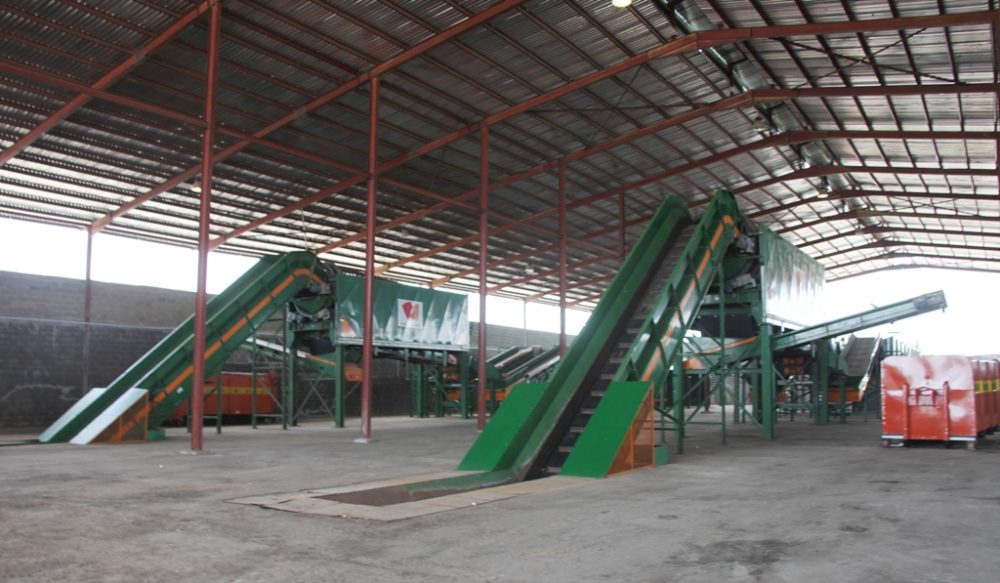
For residents of Igando and its environs in Alimosho Local Government Area of Lagos State including commuters, the conversion of a borrow pit where laterite was excavated for road construction to a dump site, is a challenge they would have to contend with for some time. Reason: the foul odour and smoke that emanate from the site and pollute the air are a cause for serious concern.
But all that appears to be a thing of the past now. Thanks to a material recovery facility located at the closed Solous 1 dumpsite. A Public Private Partnership (PPP) initiative under a Built, Operate, Manage and Transfer arrangement spanning a 12-year tenure, the scheme is expected to assist the state to reduce its carbon foot print.
Conceived in 2012, the facility has the capacity to receive about 130 waste trucks per day but presently receives 80 trucks and treats about 500 to 600 tonnes of waste.
Essentially, the MRF provides support to the manufacturing sector through the provision of waste off-takers such as plastics, papers, metals and organic materials for agricultural use.
Job creation
Within the short period of operation of the facility, it has created job opportunity for more than 300 people who are directly engaged in sorting, packaging and other operations in the plant. Besides, the facility has also indirectly provided job opportunity to various categories of people such as food vendors, people that bring in materials and paid in return, among others.
More importantly however, is the fact that most of those engaged in the operations of the facility are women. This, according to findings, is a deliberate policy of the organisation to empower women who are said to be more directly affected by socio-economic challenges.
It was also gathered that more people would soon come on board as plans are in the offing to expand activities from the facility from a single shift and accommodate more waste.
Reduction in C02 emission
As a result of the operations of the facility, the C02 emission in the state particularly from the dumpsite has considerably been reduced.
By its nature, landfills or dumpsites lead to the conversion of organic waste to biogas, containing about 50 per cent methane, a very active greenhouse gas that contributes to global warming. But, through the facility, the volume of waste that end up at the landfill has been considerably reduced with a plan by the initiator to have zero waste going into the landfill by 2020.
In the Fifth Assessment Report of the Intergovernmental Panel on Climate Change, methane has a lifetime of 12.4 years and with climate-carbon feedbacks a global warming potential of 86 over 20 years and 34 over 100 years in response to emissions.
Material recovery
The establishment of the facility has also led to materials recovery which was hitherto dumped at landfills or drainage channels. Through the facility, pet bottles in hundreds are being compressed into bails for use for other purposes while other plastics are shredded, washed and packaged for use in the manufacture of carpets, among others.
Similarly, waste paper products are being packaged for re-use while a recycling centre is under construction where nylon will be recycled into polythene bags.
Chief Operating Officer (COO) of the facility, Lolade Oresanwo, disclosed that the next phase of the project is to generate electricity from the waste that would be used to power street lights and serve the neighbourhood while the third phase will would be composting and the production of fertiliser to maintain lawns, parks, gardens and other green areas across the city.
An elated Oresanwo called on international development agencies and donor organisations to support activities that directly impact people through job creation, particularly women.
She hinted that the organisation had received a mandate from the Oyo State Government to help clean up the city of refuse, adding that compactor trucks have been deployed to the state and already working to clean up the city.
Asked on the challenges encountered in managing the facility, Oresanwo disclosed that it is just the manpower and that the organisation is addressing that through training programmes for the employees to understand what they need to do.
A resident of the neighbourhood, Alhaji Babatunde Adio, commended the initiative. He explained that since the facility started operation, the smoke and bad odour that usually pervades the environment had stopped.
“The area is now clean, the odour is no more, there is no more smoke,” he stressed.
Adio revealed that not only has the facility contributed to the good environment they now enjoy, but that it has provided jobs for people from the neighbourhood.
Executive Director, Sustainable Research and Action for Environmental Development (SRADev) Nigeria, Leslie Adogame, commended the initiative, saying it will assist in effective management of waste in the city.
Presently, Lagos, the commercial hub of Nigeria, generates about 11,000 metric tonnes of waste per day.
Former Lagos State governor, Babatunde Fashola, stated during the commissioning of the facility, “The whole world is recycling, the whole world is reusing, the whole world is conserving. So nothing really goes to waste in any significant proportion. So that is what we are signing on, we are joining the whole world by having this recovery facility to recycle our wastes and turn them into wealth.”
Globally, recycling is one method of conserving the natural environment. And MRF systems play an important role in recycling on a large scale. As an essential component of innovative waste management system by means of recycling, MRF helps in conserving the environment. It lessens the extraction of natural resources thus creating a more sustainable way of manufacturing new products. Aside from the fact that it decreases the amount of waste materials, it also prevents the spread of environmental contaminants that may endanger human health.
‘Simeon Court’ makes a debut at highbrow Oniru Estate in Lagos

The luxury estate is being built by big-wig Lagos real estate development firm, Deluxe Residences, which recently unveiled the project.

Recreational facilities in the estate include children’s playground, swimming pool, gym and generous space for indoor games. The estate also features educational, religious and social institutions/facilities. The pent house enjoys an excellent view of the ocean.
Lagos coastal community resists controversial refinery project
Due to increasing house rent in Apapa coupled with the unending gridlock, Tosan Ugeje decided to relocate to Irede community, an island close to Apapa in Lagos, home to Nigeria’s premier seaport.
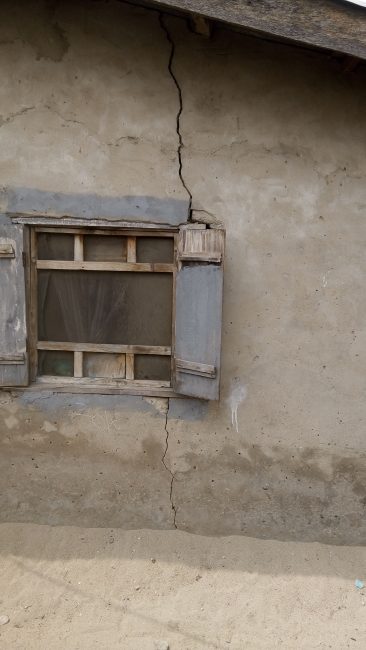
But after five years of residing in Irede, Ugeje is contemplating relocating again. Neither escalating rent nor traffic congestion has informed this decision, but a proposed project he believes potentially endangers the lives and livelihood of residents.
His source of worry – and that of other residents in the community – is an ongoing property development initiative involving dredging activities by Integrated Oil and Gas Limited on a piece of land bordering Irede. Residents say the dredging activity is negatively impacting the environment, leading to cracks in their buildings and extensive erosion along the shoreline.
Irede community is an island bordering the Apapa wharf within Amuwo-Odofin Local Government Area. A community of fishermen, artisans and business men/women of about 2,000 residents, it can be accessed by boat in less than 15 minutes from Creek Road in Apapa.
The community was developed by community effort through the Irede Community Developers Association. But it lacks basic amenities like schools, health centre, power supply and water, except those privately owned.
And the dredging activities of Integrated Oil and Gas Limited on land bordering the community looks set to compound the woes of residents, who fear that the project has no approved Environment Impact Assessment (EIA) from the appropriate authority.
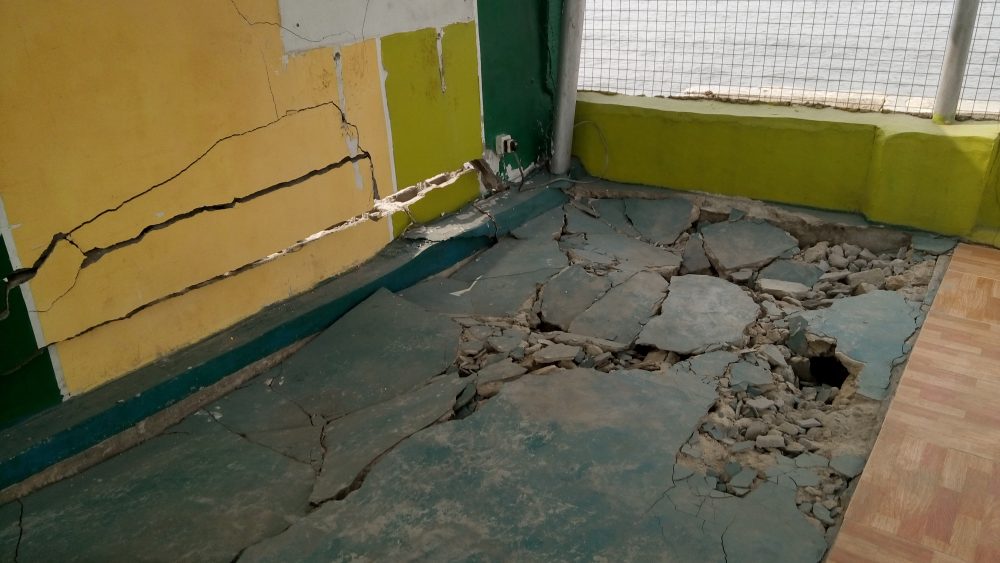
According to the spokesperson of Irede Community Developers Association, Chief Raymond Gold, in 2014 the Executive Chairman of Integrated Oil and Gas Limited, Captain Emmanuel Ihenancho, in a meeting told the community leaders that he intended to build a mini-refinery and jetty on the land.
He said: “Captain Ihenancho said the proposed project would create jobs and boost economic activities in the area. He started building a fence and the fence encroached on our pedestrian road with other neighbouring community. We complained and he created a gate for us to connect with other communities.
“But, as time went on, we expected to hear about or see the EIA of his proposed projects. Instead, dredging started in earnest and this has started to impact on buildings in our community.
“We appreciate his desire to invest in a project that will create jobs especially for our teeming unemployed youths. But we want to see or know if he has done an EIA. How will this massive project affect us now and in the long run? We are not asking for too much by demanding for the EIA. Are we not a stakeholder if this project impacts negatively?”
A member of the team that drafted Nigeria’s EIA law and a professor of Environmental Chemistry, Prof. Oladele Osibanjo, said an EIA, as an environmental tool, helps in ensuring the sustainability of any project.
“An EIA is indispensable if a project is to be undertaken and it is done before a project commences. It is a transparent process that involves the full participation of all stakeholders. Most especially the host community. They are the first group of people to benefit both negatively and positively from any project,” he said, adding:
“If an investor wants the success and sustainability of his/her investment, the community must be carried along in all steps of an EIA process.”
Professor Oladele said the citing of a mini-refinery in a delicate ecosystem like a coastal community must have a comprehensive EIA.
“This will help the community to know the impact of the project on them now and in the future. They have a right to participate in the EIA process to avoid and reduce conflict in the long run,” he explained.
When Captain Ihenancho was contacted to clarify some of the allegations against his operations close to Irede community, he described those complaining as blackmailers.
“When we want to create jobs for our people because we know how it will benefit them, some other people will be trying to blackmail you. I will not tolerate any form of blackmail,” he stressed.
Asked about the EIA of the project he is undertaking, he said the community people are not the authority and are not in a position to ask about the EIA.
He described the allegation that dredging activities by his company was impacting negatively on Irede community as “stupid and mischievous.”
He declined to answer questions about his operations and details of what he plans doing on site. In fact, he threatened that any story published about his project’s operations would “not be pleasant with all parties involved.” He also warned our correspondent not to ever contact him again and stay off the issues at Irede community, if she doesn’t want to put herself “in the firing line.”
Meanwhile, a visit to the Lagos State Ministry of the Environment revealed that the ministry has not issued an EIA in the last three years. Also, officials of the Lagos State Ministry of Waterfront Office that grants approval for dredging or land reclamation activities after an EIA has been undertaken said they were not aware such a project was ongoing.
The Director of EIA at the Federal Ministry of the Environment in Abuja, Mr. John Alonge, confirmed that an EIA was neither received nor approved on behalf of Integrated Oil and Gas for the dredging that started in 2015 on the land bought near Irede community.
“Captain Ihenancho only visited and informed us he intends building a modular refinery and mini-jetty on a land in Lagos. No approval for EIA has been issued to Integrated Oil and Gas Limited. Also according to them they have not started any work on their site,” said Alonge.
Global impact of climate change has been reported to increase through human activities termed Anthropogenic Factors by the Inter-govermental Panel on Climate Change (IPCC) report of 2010.
It is believed that when a project lacks the appropriate EIA, it impacts negatively on the sustainable development of a society. This further endangers the environment, destroying livelihood and increasing poverty.
By Augustina Armstrong-Ogbonna
Lai Mohammed to present 1st SAFFGLIA African Leadership Lecture
All is set for the launch of Segun Adeleye Foundation For Good Leadership In Africa (SAFFGLIA) at an African Leadership Lecture to be presented by Nigeria’s Minister of Information and Culture, Alhaji Lai Mohammed, at the University of Lagos,Akoka on March 10, 2016.
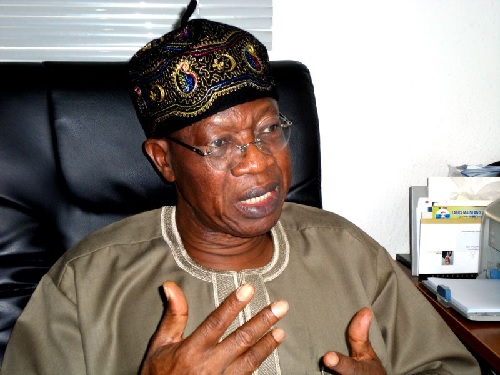
Mohammed, a lawyer and former National Publicity Secretary of the All Progressives Congress (APC), will be speaking on the topic: “Setting Agenda For Good Leadership In Africa” at the event where a book, “So Long Too Long Nigeria” authored by Segun Adeleye, President/CEO World Stage Limited, will also be launched.
Adeleye, a journalist, author, media entrepreneur and founder of SAFFGLIA, said the lecture, aimed at addressing leadership failure in Africa, is conceived to be presented at an intellectual setting in the presence of top business executives, government officials including ministers, governors, scholars, future leaders, and the media.
He said SAFFGLIA was founded to leverage on his experience over the years to help in whichever way possible in the development of leadership culture in Africa, as his way of giving back to the society henceforth.
“From my exposure over the years through interactions with business organisations and top government officials both at home and abroad, I’m concerned about how the issues of leadership failure and lack of corporate governance robbed our country and the continent the opportunity to be great,” he said
He listed the objectives of SAFFGLIA to include: To carry out activities and projects that will encourage governments across Africa to embrace good governance in order to uplift the standard of living of the people; To draw attention to activities of governments from local to national levels and encourage/compel them to do things in best interest of the people; To engage in leadership training programmes that will raise new generation of positive leaders who will champion the spirit of development of their societies in Nigeria and Africa; To provide scholarships in higher institution level to youths with leadership quality in Nigeria and other African countries.
Others include: To promote research into good leadership in Africa; To engage in research into alternative policies to existing government policies that are not working; To provide counselling, support and care for people that are unjustifiably victimised by bad governments in Africa; To organise Annual SAFFGLIA African Leadership Lecture, seminars, briefings, workshops and interventional programmes on issues of good leadership; To engage in opinion moulding, empowerment, and building confidence of people on how to make their governments accountable; To develop SAFFGLIA Good Leadership Africa Index (SGLAI) as a barometer for measuring performances of leaders across Africa; To encourage/recognise leaders that are doing well through The African Man Award; and, To establish the African Hall of Fame for distinguished leaders both in the public and private sectors.
Four billion people face severe water scarcity, study finds
The water scarcity crises is fast unfolding. Along with climate change, this can pose a grave threat to global peace and stability. According to a new study, water shortages are affecting two-thirds of world’s population for a month every year and the crisis is far worse than previously thought. Damia Carrington writes in The Guardian of London

At least two-thirds of the global population, over four billion people, live with severe water scarcity for at least one month every year, according to a major new analysis.
The revelation shows water shortages, one of the most dangerous challenges the world faces, is far worse previously than thought.
The new research also reveals that 500 million people live in places where water consumption is double the amount replenished by rain for the entire year, leaving them extremely vulnerable as underground aquifers run down.
Many of those living with fragile water resources are in India and China, but other regions highlighted are the central and western US, Australia and even the city of London.
These water problems are set to worsen, according to the researchers, as population growth and increasing water use – particularly through eating meat – continues to rise.
In January, water crises were rated as one of three greatest risks of harm to people and economies in the next decade by the World Economic Forum, alongside climate change and mass migration. In places, such as Syria, the three risks come together: a recent study found that climate change made the severe 2007-2010 drought much more likely and the drought led to mass migration of farming families into cities.
“If you look at environmental problems, (water scarcity) is certainly the top problem,” said Prof Arjen Hoekstra, at the University of Twente in the Netherlands and who led the new research. “One place where it is very, very acute is in Yemen.”
Yemen could run out of water within a few years, but many other places are living on borrowed time as aquifers are continuously depleted, including Pakistan, Iran, Mexico, and Saudi Arabia.
Hoekstra also highlights the Murray-Darling basin in Australia and the midwest of the US. “There you have the huge Ogallala acquifer, which is being depleted.” He said even rich cities like London in the UK were living unsustainably: “You don’t have the water in the surrounding area to sustain the water flows” to London in the long term.
The new study, published in the journal Science Advances on Friday, is the first to examine global water scarcity on a monthly basis and at a resolution of 31 miles or less. It analysed data from 1996-2005 and found severe water scarcity – defined as water use being more than twice the amount being replenished – affected four billion people for at least one month a year.
“The results imply the global water situation is much worse than suggested by previous studies, which estimated such scarcity impacts between 1.7 billion and 3.1 billion people,” the researchers concluded. The new work also showed 1.8 billion people suffer severe water scarcity for at least half of every year.
Farming is the biggest user of water and the growing global population requires more food. Furthermore, changing diets are having a major impact, as people with rising incomes eat more meat.
“Taking a shorter shower is not the answer” to the global problem, said Hoekstra, because just 1-4% of a person’s water footprint is in the home, while 25% is via meat consumption. It takes over 15,000 litres of water to make 1kg of beef, with almost all of that used to irrigate the crops fed to the cattle.
Another unique aspect of the new research was that it included environmental water requirements, that is the water needed to ensure that life survives in the rivers and lakes. Fish can be important sources of food for people, who also use waterways for transport.
Even just one month of severe water scarcity can have a devastating impact on the health of a river, said Hoekstra: “An empty river is not a river.” Rivers that run dry before they reach the end of their course, or come close to doing so, include the Colorado River in the western US and the Yellow River in China.
David Tickner, chief freshwater adviser at WWF-UK, said: “This paper is another pointer to the urgency of this challenge. Billions of people, and many economies, are increasingly suffering because of water-related risks which could be better managed. The same risks are causing a collapse in aquatic wildlife around the globe.”
Hoekstra said caps on water use should be put in place for all river basins, companies should be transparent about how much water is needed to make their products and look to reduce it while investors should incorporate water sustainability into their decision-making.
Ogun apprehends illicit timber merchants
In efforts aimed at curbing illegal felling of trees in state-owned forest reserves, the Ogun State Government has impounded three timber lorries and six trailers loaded with round logs and flitches, also known as ‘‘Alamole’’.
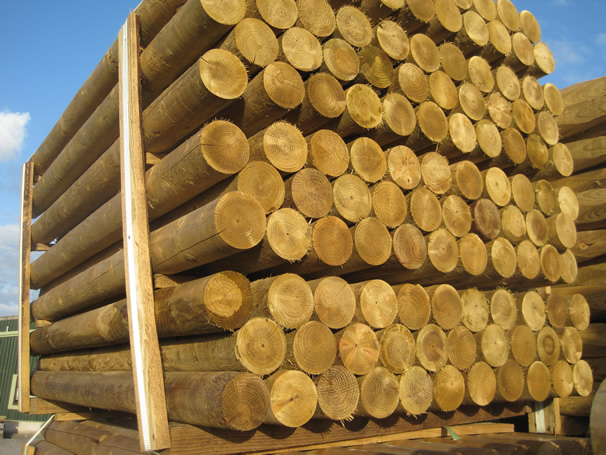
State Commissioner for Forestry, Chief Kolawole Lawal, who made this known at the weekend in Abeokuta, the state capital, described the menace of illegal loggers in the state as worrisome, adding that and frantic efforts are needed to curb the situation.
‘’Our effort is to ensure that all illegal activities in our forest reserves are curbed. If we cannot stop them completely now, we must ensure that they are reduced to the barest minimum to increase our Internally Generated Revenue (IGR) drive in the state,” he said.
The Commissioner revealed that the lorries and trailers were impounded at Omo forest reserve areas at Ajebandele, Ogbere, Ijebu-Igbo and Osun gate while perpetrating the illegal acts.
Chief Lawal said the culprits had been exploiting economic trees in the forest reserves without paying into government purse which has been hindering the regeneration effort of the Ministry.
He maintained that any illegal timber merchant arrested would have his vehicle impounded with the logs, made to pay fine and probably arraigned before the court of law in accordance with the forestry law.
In a similar vein, the Permanent Secretary, Ministry of Forestry, Engineer (or Engr.) Lanre Bisiriyu, said the nefarious activities of the illegal loggers are having negative effects on the plan of the Ministry.
He stated that the Ministry is planning to ensure that economic activities in the saw-mills are brought to life but illegal loggers who transport round logs from the state to neighbouring states are sabotaging the efforts of the Ministry to achieve the purpose.
“If this illegality in the forest reserves area can be curbed totally, it will transform the state’s economy and create much needed employment driven by rural communities which at risk of being left behind,” Engr. Bisiriyu said.
Director of Forestry Regulation and Utilisation, Mr Alamu Adeleke, said that the State forest restoration would help to bring economic revival to forest dependent rural communities, adding that it would support the co-existence of both traditional nomadic cattle herding communities and larger scale agro industry.
He appealed to illegal timber merchants in the state to desist from act of illegal felling of trees in reserve areas and follow due process if any one is interested to operate in the State owned forest reserves.

